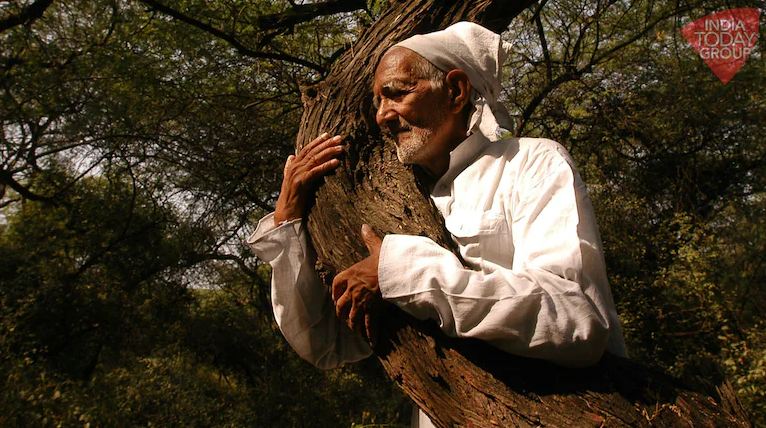Dehradun: Environmental activist Sundarlal Bahuguna, a pioneer of the Chipko Movement against deforestation in the 1970s, passed away due to Covid related complications.
The 94-year-old environmentalist was admitted to the hospital on May 8 after his oxygen levels started fluctuating. According to reports, he had been suffering from Covid-like symptoms 10 days prior to hospital admission.
He breathed his last at 12.05 PM, AIIMS Director Ravikant said. Bahuguna was on CPAP therapy in the ICU of the premier hospital.
Condoling his death, Prime Minister Narendra Modi said the late environmentalist manifested “our centuries-old ethos of living in harmony with nature.”
Passing away of Shri Sunderlal Bahuguna Ji is a monumental loss for our nation. He manifested our centuries old ethos of living in harmony with nature. His simplicity and spirit of compassion will never be forgotten. My thoughts are with his family and many admirers. Om Shanti.
— Narendra Modi (@narendramodi) May 21, 2021
Sunderlal Bahuguna was a life-long environmentalist and was credited for founding the Chipko movement – the grassroots movement that swept through the Garhwal region in the 1970s with villagers hugging trees to stop them from being axed. Later in 1990s, he spearheaded the Anti-Tehri Dam movement and even went to jail for it in 1995.
The Chipko movement was a Gandhian form of protest against deforestation by locals in the Himalayan region. To stop deforestation, locals – primarily women – would make circles around trees and stop men from cutting them down.
The first Chipko action took place in April 1973 in Mandal village, now in Uttarakhand, and spread over the next five years to many Himalayan districts.
The movement sparked after the government decided to allot a plot of forest area in the Alaknanda valley to a sports goods company.
With the help from a local NGO, the women of the area went into the forest and formed a circle around the trees, protecting them from the men who came to cut down the trees.
The women kept an all-night vigil, guarding their trees until all of them left. By then, the news of this movement had spread to nearby villages and more people joined in.
The success achieved by this protest led to similar protests in other parts of the country.







